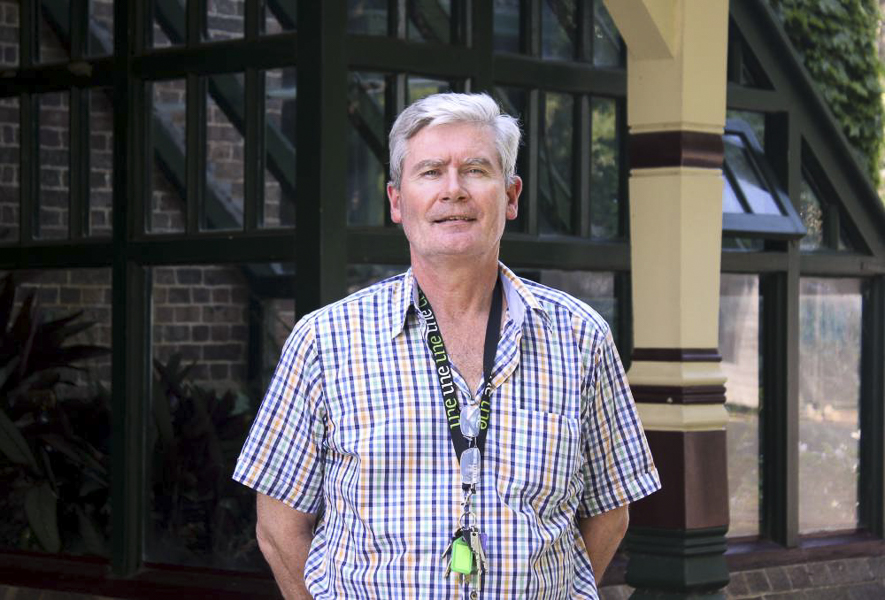
Professor Nick Reid
Adjunct professor, ecosystem management, University of New England
See Professor Reid’s full research profile here.
nrei3@une.edu.au
Research outputs linked to policy change and decision-making
- Monitoring, evaluation, reporting and improvement activities for the Border Rivers–Gwydir Catchment Management Authority (part of the Brigalow Nandewar biolinks project, Australian Government Biodiversity Fund, $531,000, 2012–2019). This project engaged scores of farmers on the north-west slopes and plains and northern tablelands of NSW in ecological restoration and biodiversity conservation. University of New England’s role was to conduct research on the challenges and benefits of local restoration and conservation works. The research program resulted in 11 refereed journal papers and an additional 2 papers in review, 13 draft Landfacts, an international conference, 2 special refereed journal issues (see below), a refereed conference proceedings and 6 PhD graduations. Professor Reid was the project leader.
- Invasive native species (INS) and soil erosion, and INS and soil health (Central West Catchment Management Authority $619,000, 2006–2010). Professor Reid led this project that investigated soil health and soil erosion in INS and non-INS areas across the Cobar pediplain in western NSW with the aim of developing evidence-based best-management principles for native pasture and invasive native species. The project findings and best-management principles arising from the 14 refereed journal papers and 2 PhD graduations of the project were captured in Managing invasive native scrub to rehabilitate native pastures and open woodlands: A best management practice guide for the central west and western regions (Central West Local Land Services 2014).
- Profitable biodiverse wool production systems for the northern tablelands of NSW (chief investigator, Land and Water Australia & Australian Wool Innovation [AWI], $312,000, 2002–2006). Land, Water & Wool was the wool industry’s nation-wide program to develop better management for improved profit and a healthier environment. Professor Reid led this project, which was 1 of 5 in the high-rainfall and sheep/wheat zones targeting biodiversity and wool production. The research produced 3 case studies, 7 wool-grower testimonials and 12 fact sheets outlining the benefits of biodiversity to northern tablelands wool-growers. All of these extension products are promoted by AWI on their website. Of the 355 woolgrowers contacted at the end of the project, 44% stated they were already doing things promoted by the project on their farms, 32% said they had started trialling some of the ideas and 16% said they would definitely trial some ideas in future. The value of the project to the region’s landholders by combining biodiversity science and extension was described by Forge-Zirkler et al. (2011).
Current academic employment and positions
- adjunct professor of ecosystem management, School of Environmental and Rural Science, University of New England.
Highest qualification
- 1985: PhD, University of Adelaide.
Major prizes, medals and honours
- 2018: invited lecturer, undergraduate/postgraduate course: Ecological Restoration: an Australian Perspective, College of Horticulture and Forestry, Huazhong Agricultural University, Wuhan, Hubei, China
- 2017: invited lecturer, postgraduate course: Ecosystem Services and Agriculture, Faculty of Forest Sciences, Universidad Autónoma de Nuevo León, Linares, N.L., México.
Roles on government or regional organisation committees
- 2012–2015, 2016–2019: chair, technical and scientific advisory Ccmmittee, Gondwana Rainforests of Australia World Heritage Area,
- 2012–2015, 2016–2019: ex-officio member, community advisory committee, Gondwana Rainforests of Australia World Heritage Area
- 2012–2019: ex-officio member, Australian World Heritage advisory committee.
Links with non-government groups or networks
- chair, local organising committee, Restore, Regenerate, Revegetate: A Conference on Restoring Ecological Processes, Ecosystems and Landscapes in a Changing World, University of New England, 5–9 February 2017. See refereed conference proceedings and 2 conference special issues of refereed journals including The Rangeland Journal, volume 39 (5&6), 2017, and Ecological Management and Restoration, volume 19, (S1), 2018.
My Projects
 Current project
Current project Completed project
Completed project
NESP RLH, 2021-2027NESP, 2015-2021NERP, 2012-2015TRaCK, 2005-present
